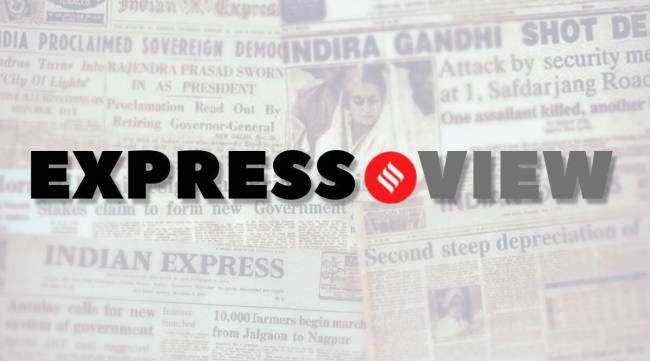Opinion Express View on I-N-D-I-A: The Opposition’s position
They gave themselves a clever acronym, got rivals at the same table — but Opposition's battle for 2024 needs a lot more.
 What these 26 parties must also work towards is a positive and affirmative imagination of the political alternative.
What these 26 parties must also work towards is a positive and affirmative imagination of the political alternative. The meeting of 26 Opposition parties in Bengaluru has, quite literally, spelled out a challenge for the BJP. Named the “Indian National Developmental Inclusive Alliance”, it will be known by its acronym INDIA. Whether this is clever or too clever by half, one thing is clear: in the bitterly contested run-up to 2024, the UPA’s cast of characters need a more vibrant script rather than a mere tweak in title. Significantly, the Bengaluru 26 has underlined “inclusive” in its name when the BJP has arguably succeeded in making “inclusiveness” a defensive political stance, by drawing a connection with the politics of appeasement. And when the Opposition shirks clear positions on divisive issues. The fact that the parties which grew from 16 in Patna to 26 in Bengaluru have pledged to meet again in Mumbai is meant to signal a gathering momentum. As is the suggestion of continuity and promise of institutionalisation in the form of the 11-member coordination committee. Having said that, however, the Bengaluru meet, for now, has drawn attention primarily to the challenges the Opposition faces, rather than those it is likely to pose for the BJP.
For one, they will have to send out the message that their coming together is not simply because they are threatened by the ED-CBI action. The case against an Abhishek Banerjee or the arrest of a Manish Sisodia or the ED shadow on a Senthil Balaji has stoked resentment in their respective parties but the sum of their anger does not add up to an alternative. While a vindictive Centre using central agencies to target its political opponents violates due process in a constitutional democracy, the BJP has succeeded in casting the onus of defending their innocence on the targeted parties. That many of these parties have skeletons in their closets has certainly not helped them. The cause of Opposition unity needs to be larger than the threat perceptions of its individual members for another reason. The BJP has been successful, again not without the Opposition parties’ own complicity, in portraying them as dynastic apart from corrupt. The fact is that at the helm of many of these parties — be it the SP or RJD, DMK or Congress — is a family. To take on the BJP, therefore, these 26 parties must find a larger idea — and build a bigger whole.
That is not all. What these 26 parties must also work towards is a positive and affirmative imagination of the political alternative. Naming themselves after the nation will be seen as yet another self-serving ploy unless the coalition spells out how it will work towards facing the challenges ahead, and solving the problems the country faces, from the shrinking of job opportunities to the ferment in Manipur. They also need to make it clear that they are not ducking the dynast-corruption charge but, instead, are making efforts to clean their stables. From Patna to Bengaluru may be a step forward but Mumbai onwards, if it wants to play this game right, a united Opposition will have to start lengthening its stride. A weak Opposition, by any name, will remain a weak Opposition.




